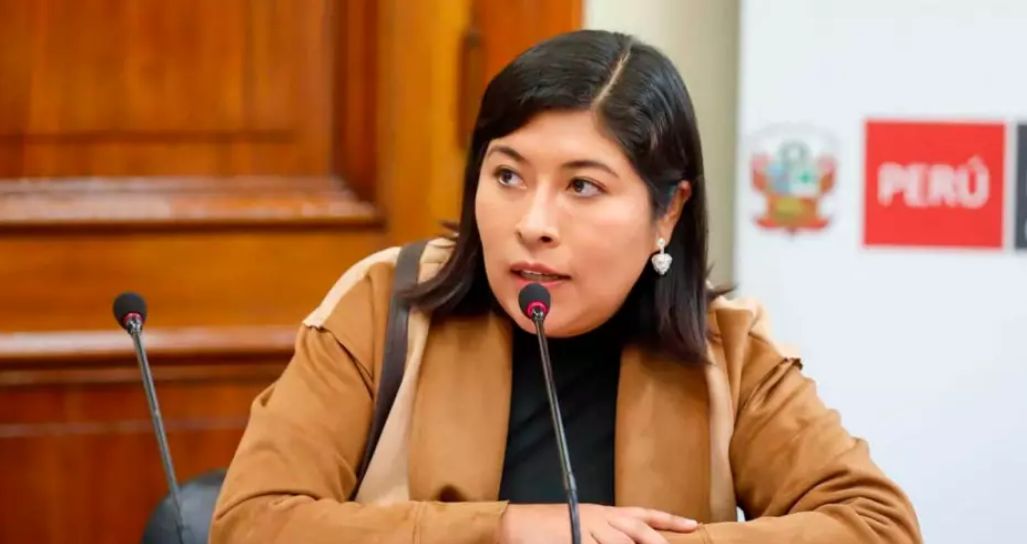Introduction
The political landscape of Peru has often been tumultuous, marked by frequent changes in leadership and intense scrutiny of public officials. One of the latest political storms revolves around the motion to “desaforar” (remove parliamentary immunity) of Betsy Chaves, a prominent figure in Peruvian politics. This motion has ignited debates about political accountability, legal transparency, and the broader context of corruption in the country. Understanding the significance of the move to Desaforar a Betsy Chaves involves dissecting the underlying legal framework, her political career, and the implications of such actions in Peru’s governance system.
Desaforar a Betsy Chaves
The term “desaforar” refers to the removal of parliamentary immunity, which protects elected officials from being prosecuted for actions taken while in office. In Peru, desafuero (the process of removing immunity) is typically invoked when a public figure is accused of wrongdoing and must face judicial proceedings. In the case of Betsy Chaves, the move to Desaforar a Betsy Chaves her raises critical questions about the nature of these allegations and the political motivations behind the attempt. The situation also highlights the tension between holding public officials accountable and protecting them from politically motivated attacks.
Who is Betsy Chaves?
Betsy Chaves is a notable figure in Peruvian politics, having held several important positions in government, including her role as Minister of Labor. Known for her progressive stances on labor rights and social justice, she has built a reputation as a defender of workers and marginalized communities. However, her political journey has not been without controversy. Her involvement in various governmental decisions and policy implementations has made her a target for critics, who allege misconduct or misuse of power.
The Allegations Against Betsy Chaves
The motion to Desaforar a Betsy Chaves stems from accusations related to her time in office. These allegations, though varied, often focus on issues such as mismanagement of public funds, failure to follow legal procedures, or conflict of interest in her decision-making processes. Supporters of the desafuero claim that these accusations warrant a full judicial investigation, unhindered by the protections of parliamentary immunity. On the other hand, Chaves’ defenders argue that these allegations are politically motivated, intended to tarnish her reputation and derail her political career.
Understanding Parliamentary Immunity in Peru
In Peru, parliamentary immunity is a legal tool designed to protect elected officials from frivolous lawsuits and ensure that they can perform their duties without fear of judicial persecution. However, this immunity is not absolute. When serious accusations are made against an official, the Peruvian Congress has the authority to initiate a desafuero process, which, if approved, removes that immunity and allows the official to be prosecuted. This system, while intended to balance legal accountability and political protection, has often been criticized for being used as a weapon in political battles.
The Process to Desaforar a Betsy Chaves Public Official
Desaforar a public official in Peru involves several steps. First, a formal accusation must be made, often by a member of Congress or a relevant legal body. The congressional committee then reviews the evidence and determines whether the case has sufficient merit to proceed. If the committee agrees, the motion is brought before the entire Congress, where a majority vote is required to strip the official of their immunity. This process is fraught with political maneuvering, as factions within Congress may have differing views on the merits of the case or the political ramifications of the decision.
Political Motivations Behind Desafuero
In many cases, the move to Desaforar a Betsy Chaves an official is seen as a political maneuver rather than a purely legal one. Betsy Chaves’ situation is no exception. As a prominent figure in Peruvian politics, her actions and decisions have inevitably attracted opposition. Some critics argue that the motion to desaforar her is part of a broader strategy to weaken political opponents and consolidate power within certain factions of the government. This perspective suggests that the accusations against Chaves may be exaggerated or even fabricated to serve political ends.
Public Reactions to the Case
The motion to desaforar Betsy Chaves has sparked significant public debate. Many Peruvians, weary of political scandals and corruption, are calling for greater accountability among public officials. They see the desafuero process as a necessary step in ensuring that no one is above the law. However, others view the move as a politically motivated attack, designed to undermine a vocal advocate for labor rights and social justice. The polarized nature of these reactions reflects the broader divisions within Peruvian society, where trust in government institutions remains low.
The Role of the Media in the Desafuero Debate
The media has played a crucial role in shaping public opinion about the motion to desaforar Betsy Chaves. News outlets with differing political alignments have framed the case in various ways, either emphasizing the need for legal accountability or portraying the motion as a politically driven witch hunt. This media coverage has influenced how the public perceives both Chaves and the desafuero process, further intensifying the debate.
Legal Ramifications of Desaforar Betsy Chaves
If Congress votes to Desaforar a Betsy Chaves, the legal consequences could be significant. Without parliamentary immunity, she would face prosecution for the accusations leveled against her. Depending on the outcome of the trial, Chaves could be exonerated, fined, or even imprisoned. Beyond the immediate legal implications, the case could set a precedent for future desafuero motions, either strengthening the process as a tool for accountability or weakening it through overuse in politically motivated cases.
Impact on Peruvian Politics
The motion to desaforar Betsy Chaves has broader implications for Peruvian politics. If successful, it could embolden other political factions to pursue similar actions against their opponents, leading to an increase in political infighting and instability. On the other hand, if the motion fails, it could signal to the public that the political elite are above the law, further eroding trust in government institutions. Either outcome could have lasting effects on Peru’s political landscape.
Betsy Chaves’ Defense
Throughout the desafuero process, Betsy Chaves has maintained her innocence. She argues that the accusations against her are baseless and motivated by political opponents who seek to discredit her work. Chaves has called for a fair and transparent investigation, expressing confidence that the legal system will ultimately clear her name. Her supporters echo these sentiments, accusing her detractors of using the legal system as a weapon to silence political dissent.
Potential Outcomes of the Case
As the case against Betsy Chaves unfolds, several potential outcomes are possible. If Congress votes to desaforar her, she will face trial and could either be convicted or acquitted, depending on the strength of the evidence. If the motion fails, Chaves will retain her parliamentary immunity, and the accusations against her may lose momentum. Either way, the case will have far-reaching consequences for both her career and the broader political landscape in Peru.
Conclusion
The motion to Desaforar a Betsy Chaves is more than just a legal battle; it is a reflection of the complex interplay between law and politics in Peru. While the process of desafuero is intended to hold public officials accountable, it is also vulnerable to political manipulation. Whether the accusations against Chaves are grounded in legitimate concerns or are part of a larger political strategy, the outcome of this case will have significant implications for Peru’s governance, legal system, and political culture.
FAQs
What does desaforar mean in Peruvian politics?
Desaforar refers to the removal of parliamentary immunity, allowing an official to be prosecuted for alleged crimes.
Why is Betsy Chaves facing desafuero?
Betsy Chaves is facing desafuero due to allegations of misconduct during her time in office, though some argue these accusations are politically motivated.
What is parliamentary immunity?
Parliamentary immunity protects elected officials from prosecution while in office, ensuring they can perform their duties without legal interference.
How does the desafuero process work in Peru?
The desafuero process involves a congressional review of accusations, followed by a vote to remove the official’s immunity if the case is deemed strong enough.
What are the political implications of desafuero?
Desafuero can be a tool for legal accountability, but it can also be used as a political weapon to weaken opponents.
What are the possible outcomes for Betsy Chaves?
If desaforado, Chaves could face trial and possible conviction, or she could be exonerated. If not, she will retain her immunity and remain in office.











